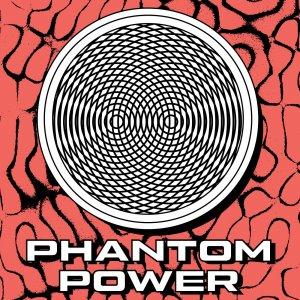Phantom Power

Ep. 1: Dead Air (John Biguenet and Rodrigo Toscano)
On our first episode of Phantom Power, we ponder those moments when the air remains unmoved. Whether fostered by design or meteorological conditions or technological glitch, the absence of sound sometimes affects us more profoundly than the audible.
We begin with author John Biguenet discussing his book Silence (Bloomsbury, 2015) and the relationship between quietude, reading, writing, and the self.
Next, we speak to poet and hurricane responder Rodrigo Toscano, who takes us into the foreboding silence in eye of a storm.
Finally, our own co-host and poet cris cheek ponders the many contradictory experiences of "dead air" in an age of changing media technologies.
Today's episode features music by our own Mack Hagood and by Graeme Gibson, who is currently touring on drums with Michael Nau and the Mighty Thread.
Transcript
[♪ ethereal music playing ♪]
[CRIS CHEEK]
This… is… Phantom Power.
[MACK HAGOOD]
Episode One.
[CRIS]
Dead Air.
[RODRIGO TOSCANO]
You know, silence…
[JOHN BIGUENET]
It’s like, uh, it’s like a vacuum… like a walkie-talkie, where you’ve gotta press the button to speak and let it go to hear.
[CRIS]
The signal drops out.
[MACK]
Hello, and thanks for joining us on Phantom Power, podcast about sound in the arts and humanities. Over the next six or seven episodes this season, we’ll be investigating how artists and scholars are thinking about sound, writing about sound, and using sound to make things. My name’s Mack Hagood, I’m a media scholar, a writer, and a musician.
[CRIS]
I’m cris cheek, I’m a poet. Sometimes a sound poet, sometimes an unsound poet. I’ve also done a lot of work with music over the years. And I’m gonna be learning a lot as we make this series in terms of thinking about listening and talking together. Sounds about sound.
[MACK]
And I don’t, I don’t know if this is ironic or fitting, but we’re starting off this first episode talking about silence. So today we sort of have a three parter. We’re thinking about the roles of silence, uh, in reading and writing, and we’re going to think about the dead air in the eye of a hurricane, this kind of silence that prestiges something terrible. And, um, then we’re going to think about silence as a disruption. You know, an interruption of your regularly scheduled broadcast, or what they call
[CRIS]
Dead air.
[MACK]
[laughing]
So, cris, a long, long time ago, I was a 19 year old college student in New Orleans, Louisiana, at Loyola University. And I just took this, you know, intro English class with this professor named John Biguenet and he just made a huge impression on me, really started making me think in different ways. And then I went on with my life, and it turned out that this gentleman John Biguenet turned into a well known fiction writer, poet, playwright, um, he has written a collection of short stories called The Torturer’s Apprentice, which is just this sort of spellbinding collection that is a little bit Chekov, a little bit Kafka, a little bit Borges. Um, he’s won the O’Henry Award for Short Fiction, uh, he’s won a Harper’s Magazine Writing Award. He wrote this trilogy of plays about Katrina and the flooding of New Orleans. And now he’s written a book on silence, uh, for this series of short books that have titles like Bread, or, uh, Golf Ball. [laughing] So, just kind of thinking deeply about these quotidian objects in our everyday lives and John chose silence. I read it, it’s a terrific short book, I highly recommend it.






 Visit Podcast Website
Visit Podcast Website RSS Podcast Feed
RSS Podcast Feed Subscribe
Subscribe
 Add to MyCast
Add to MyCast